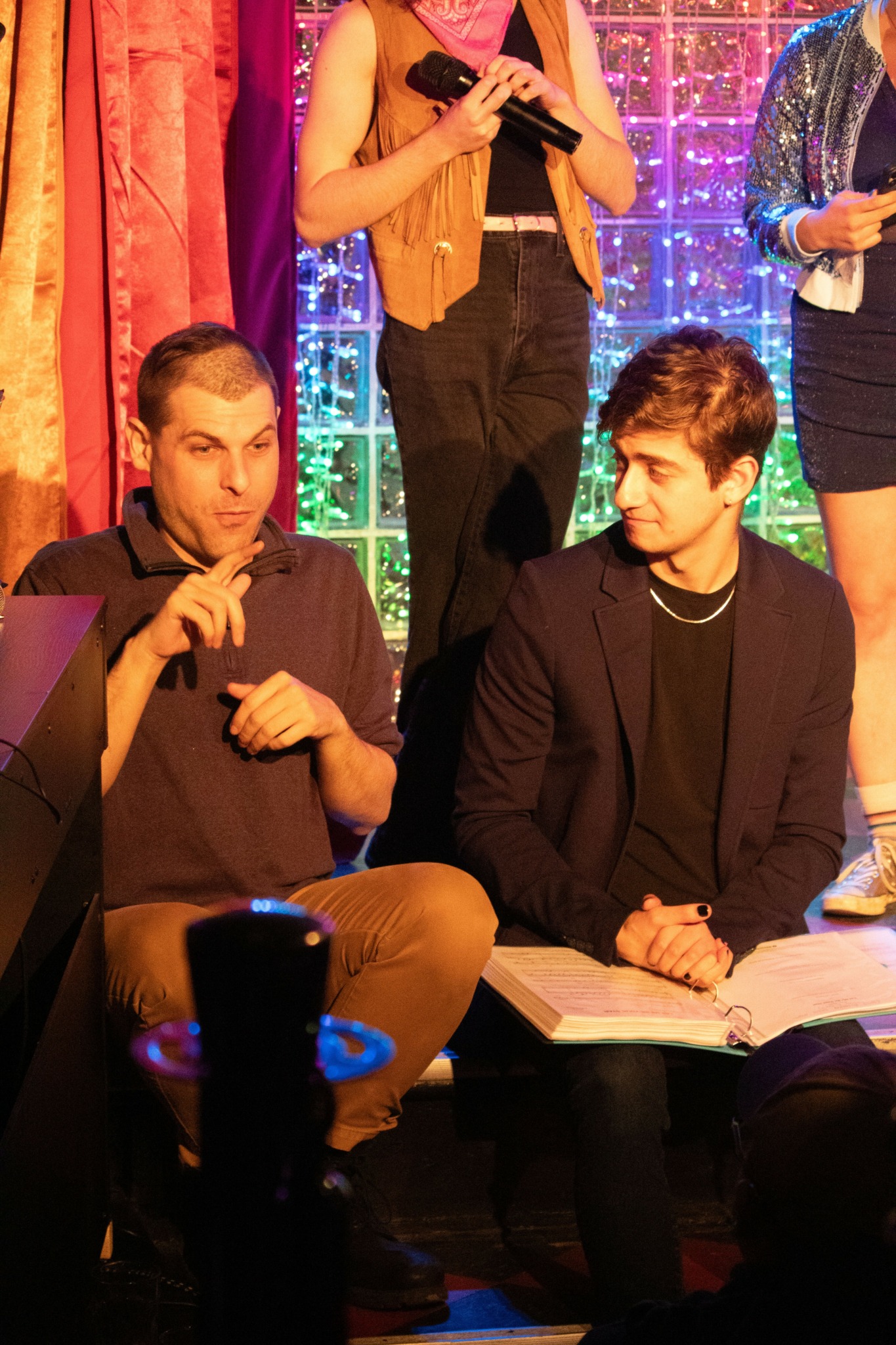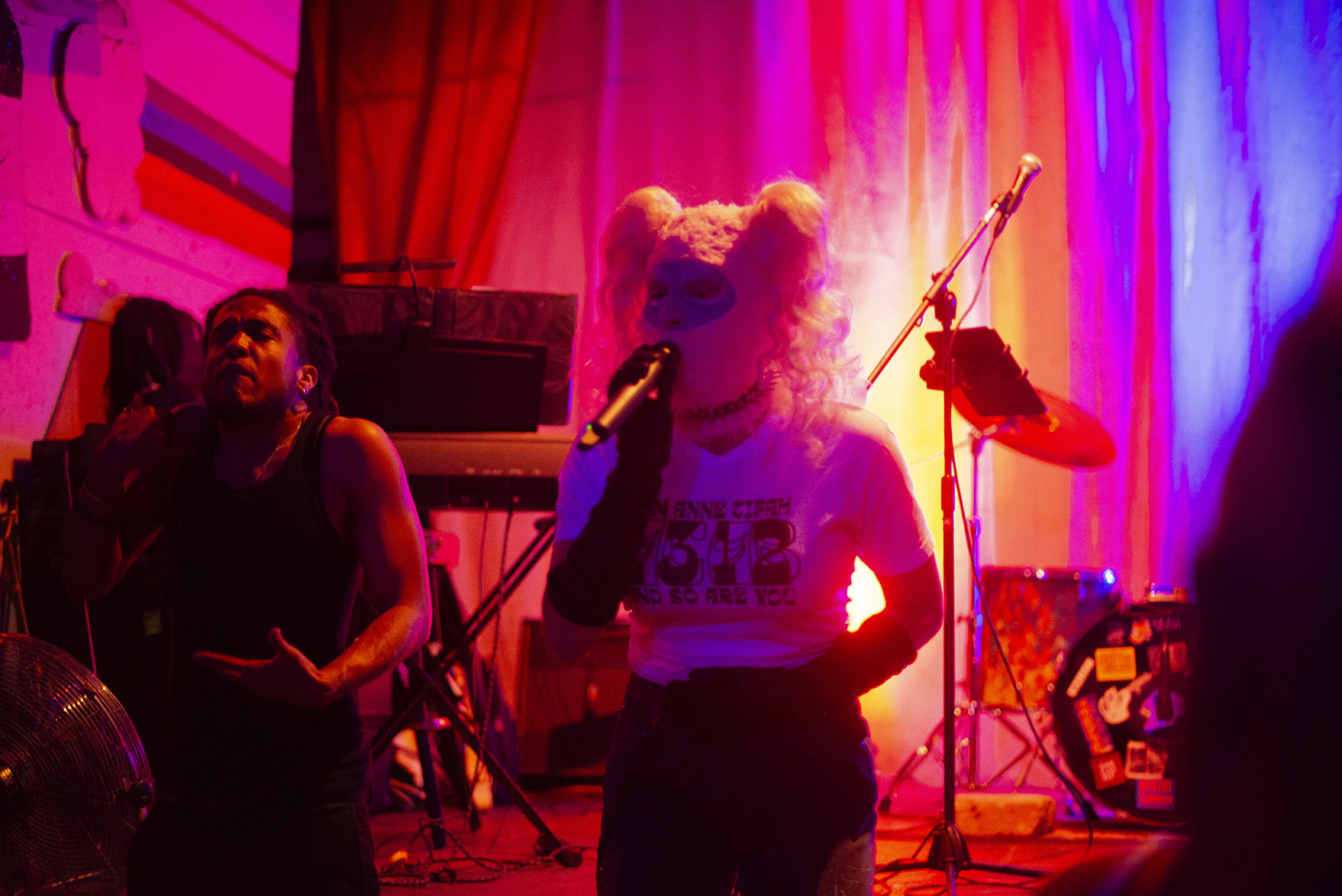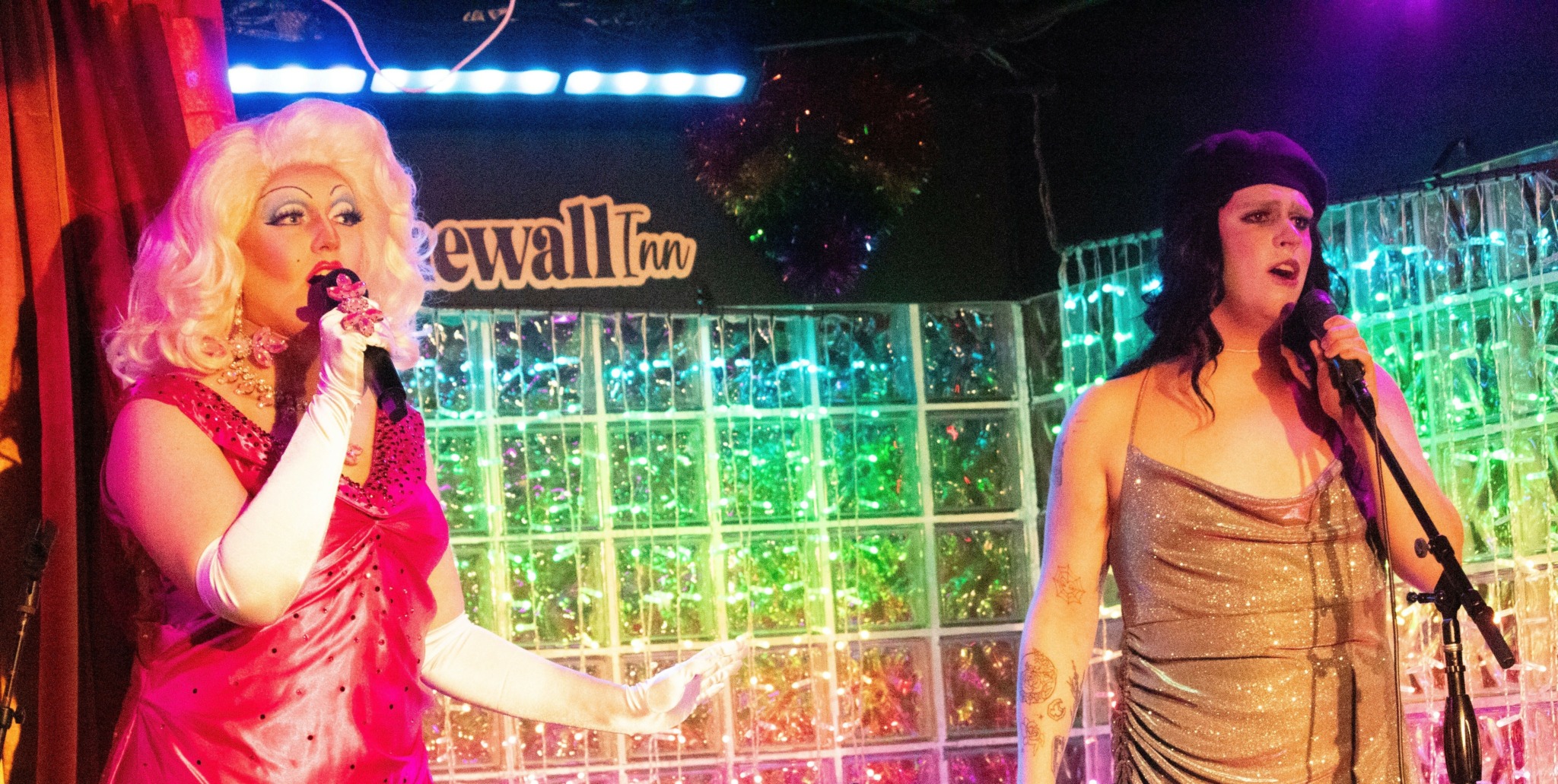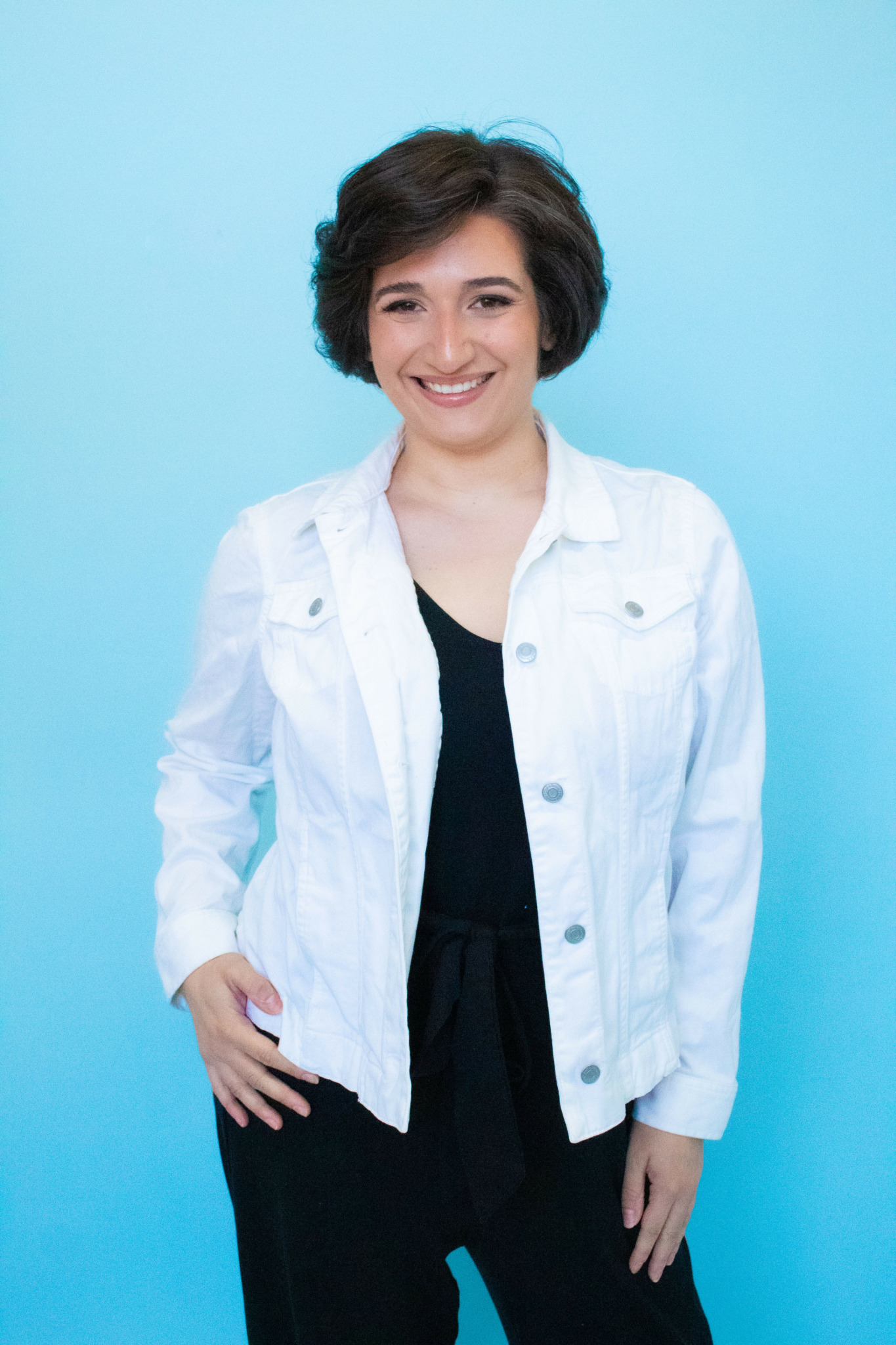We were lucky to catch up with Adriana Nocco recently and have shared our conversation below.
Adriana, appreciate you joining us today. Can you talk to us about a project that’s meant a lot to you?
Thank you so much for featuring me – it truly means a lot!
The most meaningful project I’ve worked on is the launch of Shatter The Glass Productions (STG), the theatre and production company that I recently co-founded. Our goal is to break down barriers and build safe, inclusive spaces for marginalized and underrepresented voices, especially within the New York City performance scene and the broader entertainment industry. At STG, we consider Access, Community, & Equity to be our three core guiding principles.
STG was born out of a moment of deep emotional urgency. In November 2024, shortly after Donald Trump was re-elected president, I saw We Live In Cairo at New York Theatre Workshop, as well as Suffs on Broadway. Then, just five days after his January 2025 inauguration, I saw Cabaret at the Kit Kat Klub. These shows, each political in their own right, hit me hard and jolted me out of my own state of freeze. They made me think deeply about resilience through despair, the purpose of activism, and the essential human drive to keep fighting, even when the odds feel insurmountable.
I kept coming back to that quote often attributed to Edmund Burke: “The only thing necessary for the triumph of evil is for good men to do nothing.” I knew I couldn’t do nothing. I also know that I have privilege, particularly as a cis white woman, and that it is my responsibility to use that privilege to uplift others, especially those who face systemic oppression simply for existing.
In early 2025, I was having vulnerable, honest conversations with my trans and nonbinary friends, many of whom were feeling particularly unsafe and unsupported in the current political climate. I asked myself: what can I tangibly do? As an artist and theatremaker, how can I use my skills, my community, my resources, to show up in a meaningful way?
That’s when the idea for a cabaret fundraiser hit me – a joyful, authentic, defiant celebration of trans and queer voices, with all proceeds going to Point of Pride, a remarkable trans-led nonprofit that provides medical and gender-affirming care to trans and nonbinary folks. I floated the idea on Instagram, asking if anyone would be interested in donating their time and talent as a performer or collaborator, and whether anyone had connections to venues I might be able to use for the event. The outpouring of support was immediate and overwhelming – a potent reminder that compassion and community do persist, even in the darkest of times.
I was soon connected with one of the historic Stonewall Inn’s event coordinators, and suddenly, it all clicked. Given Stonewall’s legacy, and the recent removal of the letter “T” from the Stonewall National Monument section of the National Park Service website, there could not have been a better venue to host what became my inaugural Point of Pride Cabaret Fundraiser.
The incredible Emily J. Whalen reached out to express interest in associate-producing the event alongside me, and the amazing Bruce Baumer volunteered to serve as our music director. Together, Emily and I shaped the cabaret to reflect our shared values: inclusivity, authenticity, joy, and the disruption of outdated norms. Our cast ended up being entirely composed of LGBTQIA+ artists, with a deliberate emphasis on spotlighting trans and nonbinary performers. Our guiding philosophy? Come as you are. Dress however you like. Sing what speaks to your soul. Defy the binaries. Contest heteronormativity. Claim your space.
We wanted this event to be more than just a fundraiser – it was a community gathering, an act of resistance, and a love letter to gender diversity. We were also deeply committed to accessibility: the event was ASL interpreted by Tolly Tolman and Mark Weissglass, ensuring that not only our cast and crew, but also our audience, reflected the diversity of the city we serve. Folks with disabilities are frequently excluded from consideration in the theatre scene, and one of STG’s goals is to ensure there is always a seat for them at the table – and in the audience.
The event took place on March 25, 2025 – the week before Trans Day of Visibility – and it was a night I’ll never forget. Twenty-two incredible performers, fifteen of whom were part of the trans and nonbinary communities, took the stage and laughed, cried, and celebrated each other. One performer even sang “Wig In A Box” from Hedwig and the Angry Inch, and crowned themselves with flowers as a tribute to Marsha P. Johnson. Thanks to our photographer, Annie Brown, and videographer, Layla Pigott, the magic was beautifully captured on camera, and can now be revisited for years to come.
We ultimately exceeded our original fundraising goal by nearly $1,000 – ultimately raising $2,700 for Point of Pride. Not only were we able to raise enough money for over one year of Hormone Replacement Therapy costs for at least one trans person; we were able to build something impactful together. Every single person involved donated their time and talents to making the event a success. We proved that when you center empathy, authenticity, and intention, the right people show up.
That one ripple turned into a tidal wave. The success of the Stonewall event has led to the creation of an ongoing Point of Pride Cabaret Fundraiser series, which we established in partnership with Point of Pride co-founders Aydian Dowling and Jeff Main. Our second fundraiser took place at Rubulad this past June, commemorating both Pride Month and Juneteenth. Thanks to a generous donation from Broadway Cares/Equity Fights AIDS, we were actually able to make a number of free tickets available for the event’s second iteration! Our third event will take place at Caveat on the evening of December 2, coinciding with Trans Day of Remembrance, World AIDS Day, and Pansexual Pride Day.
Last but certainly not least, that first cabaret fundraiser at Stonewall laid the foundation for Shatter The Glass Productions itself. Following the success of our first joint event, Emily and I decided to forge a co-producing partnership, and co-founded STG together. As STG’s co-leaders, we produce creative works with a mission: to amplify underrepresented voices, combat gatekeeping, challenge the status quo, and bring people together through the transformative power of performance.
We’ve also launched what we’re calling the Shatter The Glass Spotlight Series – a new, open-ended platform for community collaboration. Emily and I are proud to be building an initiative that gives other artists the opportunity to step into the producing spotlight and bring their ideas to fruition.
Through the Spotlight Series, artists can now pitch passion projects directly to us – from cabarets and concerts to staged readings and fully realized productions. Guest producers whose proposals are selected receive our co-producing support, resources, and a platform through which to bring their vision to life under the STG banner. For instance, I’m currently co-producing a Shatter The Glass Spotlight Series cabaret with guest producer Kaden Potak, which will take place on Sunday, December 28 at Caveat. (I originally connected with Kaden through their participation in the Point of Pride Cabaret Fundraiser series as a performer. Kaden actually received their first-ever chest binder from Point of Pride, so the cause is especially near and dear to their heart.) The show, titled “Transpositions: A Debut and Revue,” will feature a cast of trans and gender diverse performers revisiting roles they played before transitioning, as well as tackling their post-transition dream roles.
What I hope people take away from the story of STG’s inception is that real change starts with community – with people willing to show up, wear their hearts on their sleeves, and roll up those sleeves too. When it comes to combating rampant hatred and exclusion, art is one of the most powerful weapons in our arsenal, and there is so much work to be done.

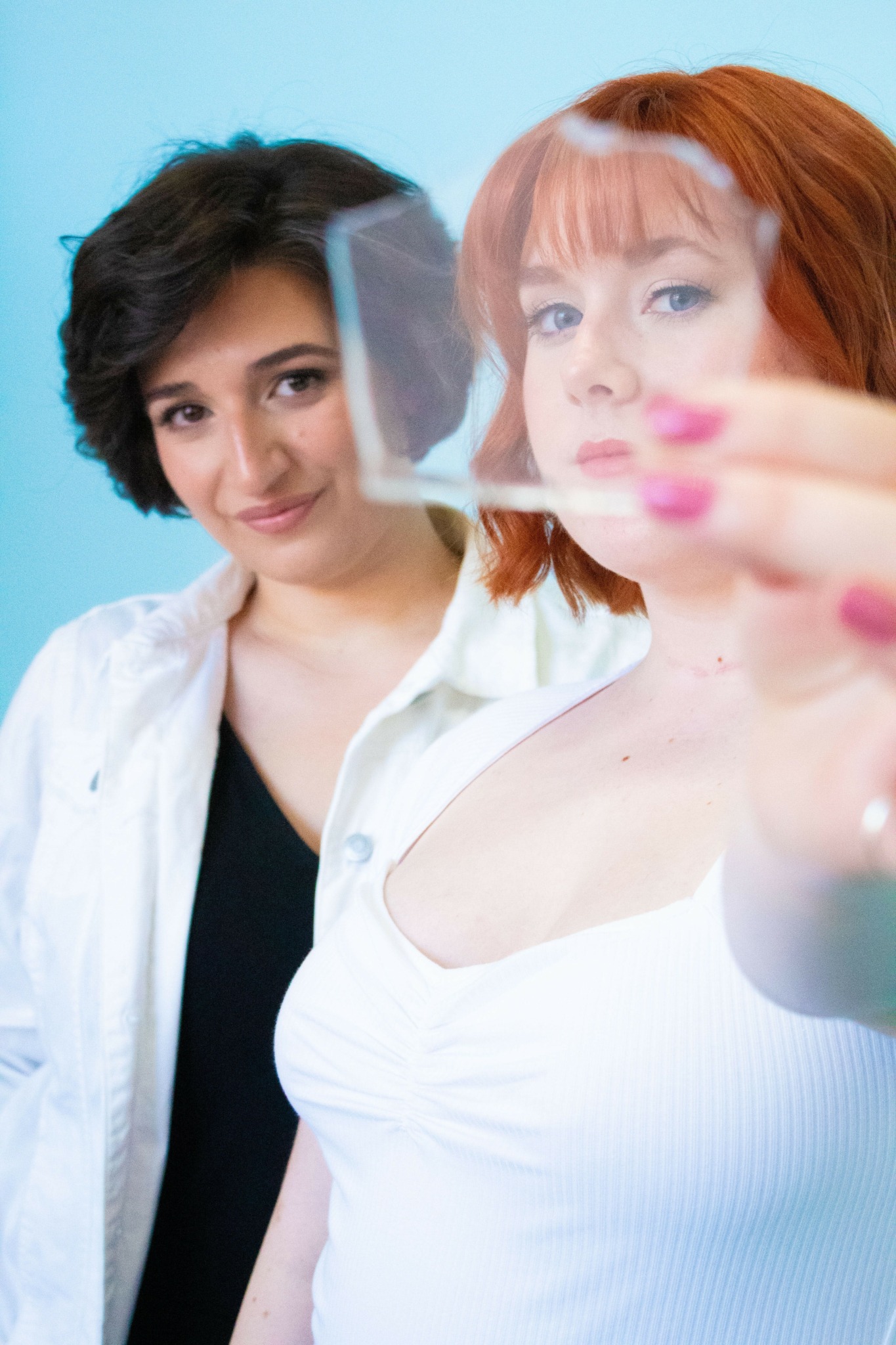
As always, we appreciate you sharing your insights, and we’ve got a few more questions for you, but before we get to all of that, can you take a minute to introduce yourself and give our readers some of your background and context?
My name is Adriana Nocco, and I am a multidisciplinary creative, the co-founder of theatre and production company Shatter The Glass Productions, and the thought leader behind STG’s Point of Pride Cabaret Fundraiser series. Based in NYC, I’m a producer, writer, performer (including performances of the “drunk” variety – I’m a Company Actor with A Drinking Game NYC, and have performed with Drunk Musicals), director, voiceover artist, and teaching artist with Inside Broadway. I’ve performed at Feinstein’s/54 Below, Don’t Tell Mama, 53 Above, the Triad, the Chain, Theater for the New City, and Carnegie Weill Recital Hall (accompanied by Mo Pleasure of Earth, Wind & Fire). As a musical theatre performer, I made my off-Broadway debut as a lead in Waiting In The Wings at Theatre At St. Clements in 2023, having learned my replacement track in six days’ time. I also happen to be a proud cat mom to Dusty Rose, Rizzo, and my dearly departed Rumer.
I’ve worn many hats, but if there’s one overarching throughline that connects everything I strive to accomplish, it’s this: storytelling as a tool for empathy and inclusion, and as a catalyst for sociopolitical change.
I’m a southern Italian (largely Sicilian) American, originally born in Brooklyn and raised in Westchester County. As a cis white woman who grew up amidst a great deal of privilege – and in close proximity to NYC – I was regularly afforded the opportunity to attend Broadway shows. At the time, I may not have fully understood what I was witnessing from a practical standpoint, but I knew one thing for certain: I never wanted to stop feeling the way I did when the house lights dimmed and the story began.
Everything I gravitate toward – writing, performing, producing, creating platforms for others – centers around storytelling. I believe that storytelling, especially given its immense capacity to provoke thought and empathy, is one of the most powerful tools we have to understand one another. It allows us access to other perspectives while reflecting our own unique lenses of perception. It “zooms in” and “zooms out” simultaneously; it is individualistic and universal, all at once. That intersection, between the personal and the collective, is where my aspiration lies.
Growing up, I often felt like a misfit. I was a highly sensitive child with undiagnosed ADHD, with emotions that others labeled as “too much,” “too big,” “too intense.” I found solace in stories – in reading, writing, and eventually performing. My second-grade teacher, Mrs. Goldstein, changed my life by casting me in her annual “Rainforest Play.” Standing in front of an audience and teaching them about the rainforest was the first time I felt truly, publicly celebrated for taking up space. That moment taught me that performance could be a safe and transformative outlet, and that there might be a place, a community, for someone like me. Today, through my work with Inside Broadway, I serve as a teaching artist introducing NYC public school students to the performing arts – often for the first time – creating a full-circle moment that echoes theatre’s early impact on me, a former second grader who once struggled to find a sense of belonging.
That message was continually reinforced by my grandmother, Adriane Nocco. “Nanny” was my namesake, my inspiration, and the embodiment of inclusivity. She treated everyone like family, and ensured that I felt loved and celebrated exactly as I was. If you were loved by Nanny, you had a seat at the table. That spirit of radical welcome informs everything I do today, especially in my efforts to create space for underrepresented voices.
I’m also an athlete – I played various competitive sports, including varsity tennis and state-championship-level softball, growing up. As a girl that was a competitive athlete, I was no stranger to backhanded compliments: “She’s really good…for a girl.” “She has the best throwing arm I’ve ever seen…on a girl.” Those comments shaped me. They fueled the fire. They taught me what it feels like to be underestimated, pigeonholed, and told to shrink…and why creating space matters.
Over time, through travel, exposure, education, and storytelling, my understanding continued to broaden. I attended Bryn Mawr College, where I majored in English and became the intersectional feminist thinker I am today. I came to realize that many others, with far less societal privilege than I have, experience this pressure to shrink themselves tenfold.
As a Bryn Mawr student, I directed collegiate productions of musicals, led the board of Bryn Mawr and Haverford’s student-run musical theatre group, and learned to mount productions from scratch – including my directorial debut, which I staged in a former dining hall. I did all of this while deepening my understanding of both literature and social justice, and, during the latter half of my time at Bryn Mawr, serving as an intern (and later as a guest writer) for OnStage Blog. After graduation, I gained further experience – first at a fringe theater in London as an arts administration intern, then back home working for a community-driven nonprofit. I later gained acceptance to and trained at Circle in the Square Theatre School in NYC (Musical Theatre Track), where I studied everything from Clowning to Stage Combat. I graduated from Circle’s intensive conservatory program in 2019, armed with the skills to bring stories to life – both on and off the stage.
Then came 2020, and with it, a global pandemic. As the entertainment world came to a standstill, I had a breakthrough: I didn’t need permission to be an artist – I could give MYSELF that permission. I began writing again, producing virtual work, collaborating remotely with artists from other cities, states, and countries, organizing Zoom play readings, and rediscovering my voice. The question I now live by, borrowed from Leslie Odom Jr.’s book Failing Up, is this: how are you being an artist when the phone isn’t ringing? I stopped waiting for the phone to ring. Instead, I started answering my own call, and calling on other artists to join me in my creative endeavors.
Today, as a creative platform founder, producer, writer, and performer, my mission is clear: to create inclusive, safe spaces for artists to occupy, so that they, in turn, can take up space. I strive to “shatter glass ceilings,” unlock the gates that gatekeepers have long kept shut, amplify marginalized voices, and to use art as a vehicle for change – both within the entertainment industry and within society at large.
How do I define the artist I commit to being, REGARDLESS of whether the phone is ringing? My answer is this: by building the table, pulling up chairs, and saying – loudly and clearly – there is a place for you here.
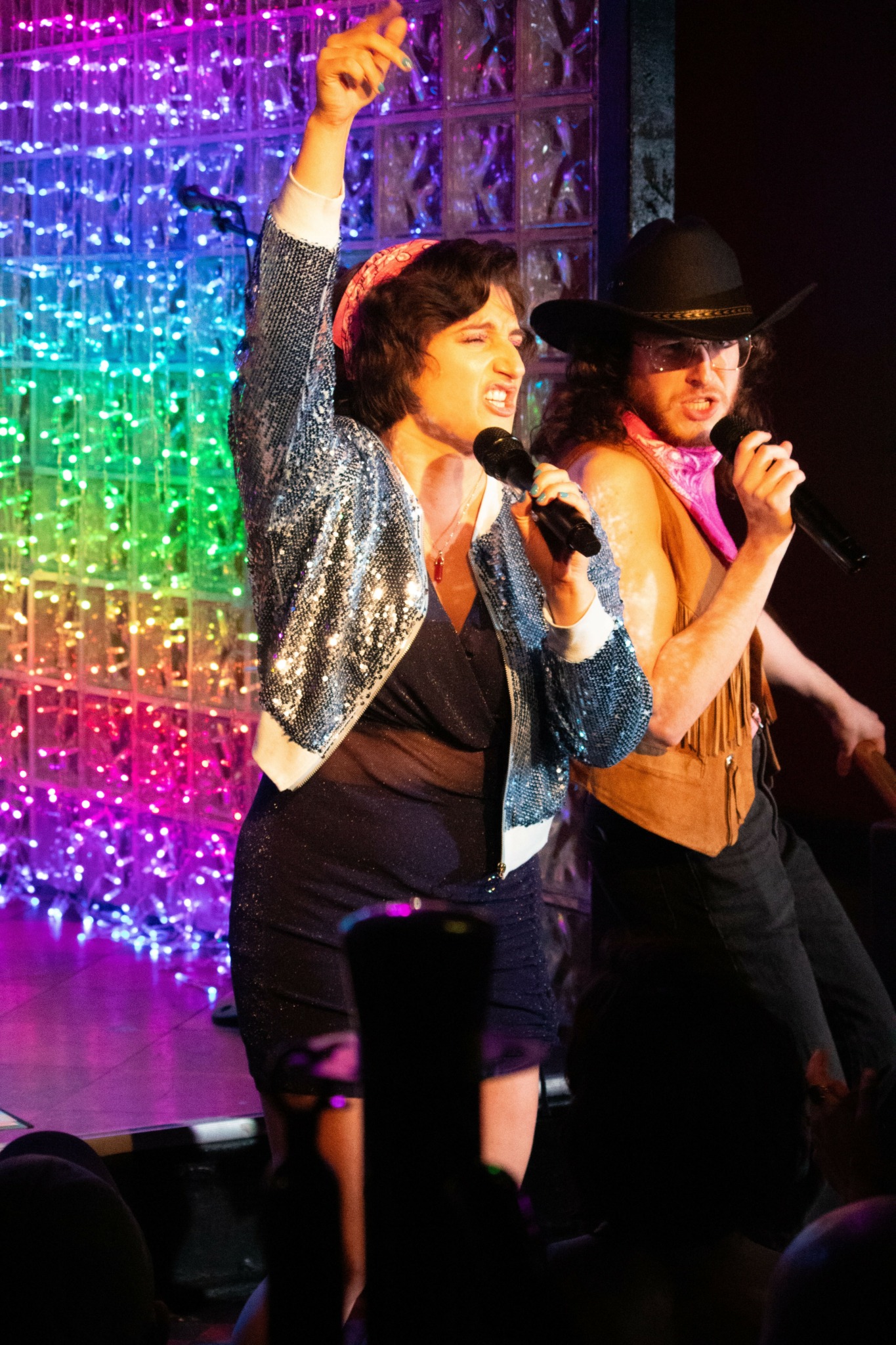
Is there a mission driving your creative journey?
At the core of my creative journey is a mission to create safe, inclusive spaces where artists – especially those from marginalized and underrepresented communities – can take up space as their full, authentic selves.
I’m driven by a deep desire to uplift others and to dismantle the gatekeeping structures that still dominate much of the entertainment industry. I see my role not just as an artist, but as someone who can leverage the privilege, resources, and connections I’ve been afforded to open doors for others who haven’t had the same access.
Growing up, I benefited from financial privilege, strong educational opportunities, and access to top-tier training environments. Yes, I’m smart, talented, and hardworking, but I’m also deeply aware that countless people with those same qualities are held back by systemic inequities. It’s not just about ability – it’s about opportunity, access, and timing. Too often, the same people end up seeing theatre, the same people end up being seen in theatre, and the cycle of homogeneity continues.
So I strive to be a sort of “Robin Hood” of the arts – using what I’ve been given to help level the playing field. Whether that’s through writing and producing inclusive work, providing performance opportunities, platforming underrepresented voices, or fostering community behind the scenes, I aim to ensure that more people not only get through the door, but feel empowered to take up space once they’re inside.
I’m especially passionate about intersectional feminism, and I believe that our industry – and our world – cannot move forward without centering the experiences and leadership of creatives who are BIPOC, LGBTQIA+ (particularly trans, nonbinary, and gender diverse), people with disabilities, and others who are marginalized. My work is about gathering community, challenging systems, and making sure that those who are too often silenced get access to the microphone – and the spotlight.
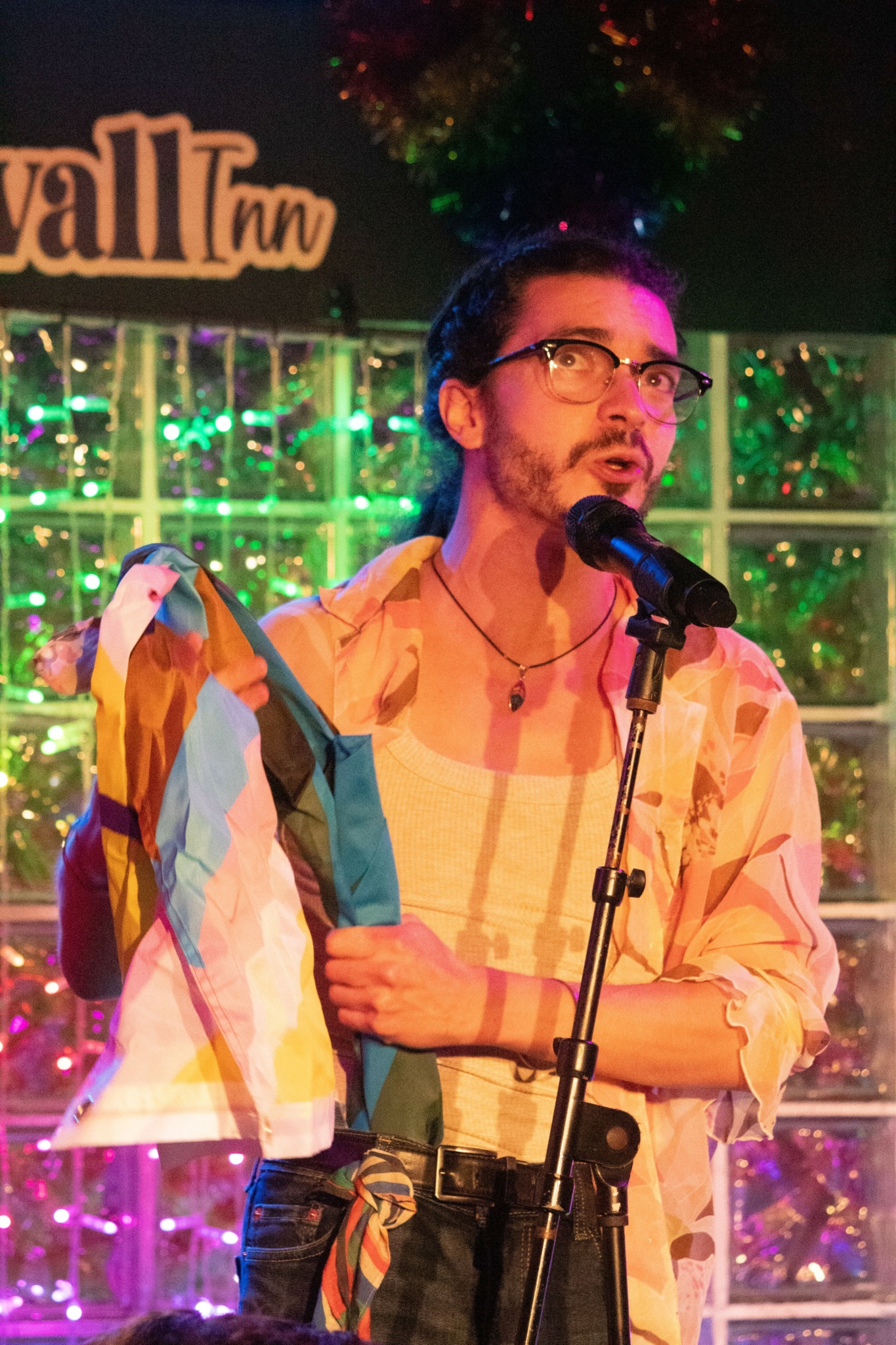
What’s a lesson you had to unlearn and what’s the backstory?
One of the biggest lessons I had to unlearn was the idea that there’s a “right” and a “wrong” way to be a performer in New York City.
I’ve learned through experience, both within performing arts institutions and in the entertainment industry at large, that while theatre holds tremendous power to create, inspire, and galvanize community, commercialized theatre frequently does the opposite. It can make people feel limited, pressured to shrink themselves or conform to rigid standards, typecasts, and predetermined archetypes.
The belief that there is a “right” and “wrong” way to be a performer is rooted in rigidity, hierarchy, and outdated industry standards, and was something I internalized early on through years spent in various rigorous theatrical training environments. Across these environments, the message was clear: here’s the mold. Fit into it – or get left behind.
I was often pigeonholed, told what “type” I was, what I could or couldn’t do, how my career “should” or “would” take shape. I watched my peers get boxed in too – some of the most multifaceted, vibrant artists I knew being reduced to narrow labels based on one monologue and a thirty-two-bar cut. I remember hearing about how a former plus-sized classmate of mine, with a beautiful soprano voice, had been told to take ingénue songs out of her audition book simply because she didn’t match the ingénue mold that she was “supposed” to fit into in order to be considered a “castable” ingénue within the musical theatre industry.
For a long time, I also internalized the label of “strong mover,” believing I couldn’t call myself a dancer because I hadn’t undergone dance training for three hours a day since childhood or mastered triple pirouettes. That label stuck, and it limited me. I let it. For years, I only allowed myself to dance in clubs on Saturday nights.
Eventually, after discovering and committing to The Artist’s Way (Julia Cameron), something shook loose, and I found that dance was calling my name. I felt drawn to explore new movement practices, which led me to burlesque – and something profound clicked. I didn’t just reconnect with my body through burlesque – I reclaimed it.
I realized that art, movement, and performance don’t need to conform to tradition or technique to be valid or powerful. Burlesque, in particular, is about play, subversion, inclusion, and about performing on one’s own terms, with others present to witness it.
That experience reframed my entire understanding of what it means to be a performer. What’s more, because I finally felt grounded, present, and unapologetically myself in my body, that sense of alignment opened a pivotal new door, allowing me to fully embrace my bisexuality.
The turning point, for me, came when I stopped seeking permission to make art, and started giving myself that permission instead. Playing a character had always felt “safer” from my perspective because it gave me “permission” to take up space. But I realized I didn’t need to be in character in order to do that. I could take up space as me. I could write, produce, direct, sing, dance, speak, create – and invite others to do the same.
That unlearning was the seed that eventually grew into Shatter The Glass Productions, where I now get to create spaces for other artists who’ve been boxed in, overlooked, or underestimated – who’ve been told who they are or what they can’t do. At STG, we center authenticity and empowerment over industry mold. We follow our own sense of truth. We trust ourselves. We trust our collaborators’ sense of themselves.
The lesson? There is no one right way to be an artist. You get to define your own path – and that definition can evolve as you do.
Contact Info:
- Shatter The Glass Productions Instagram handle: shattertheglassproductions
- Shatter The Glass Productions email address: [email protected]
- Adriana Nocco’s Instagram handle: noccosmodernlife
- Adriana Nocco’s email address: [email protected]
